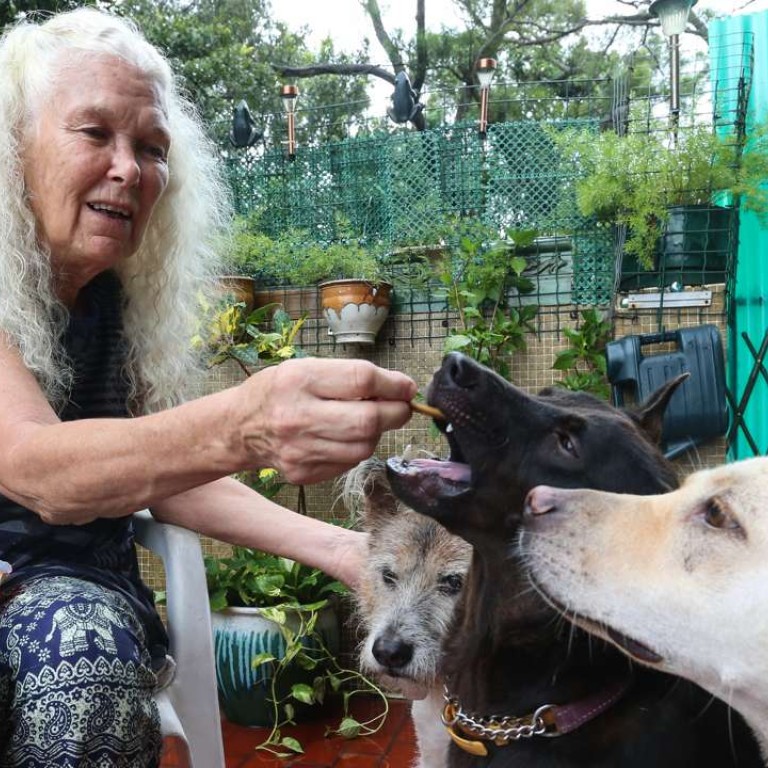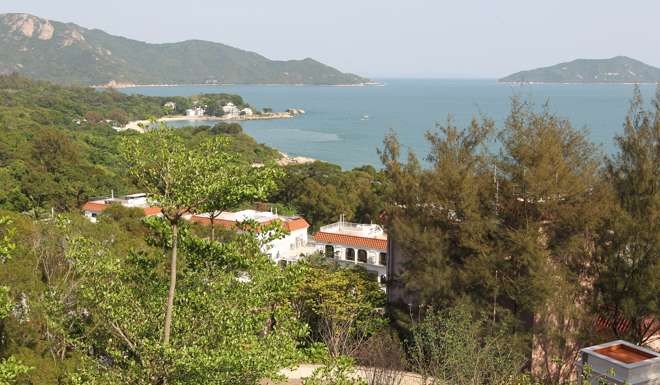
How an animal rights activist found sanctuary in Hong Kong
Jacqui Green looks back at her early days in the city, why she founded a charity in Lantau and her fears for the future
“I had terrible culture shock to begin with – I hated it.”
Jacqui Green’s initial impressions of Hong Kong were far from positive. But the 66-year-old animal rights campaigner from England has been living around the city and its islands for more than half her life. Much of that time has been spent on Lantau, where she founded her charity, Protection of Animals Lantau South (PALS).
Green had pets growing up – guinea pigs, dogs and budgies – but only began to take a serious interest in animal welfare after moving to Mui Wo in the late 1980s. Overhearing the cries of farmed pigs cooped up in cages as they were transported across the island left her feeling uneasy.
“It was so distressing,” she said.

Green was born in Paddington near Regent’s Park, northwest London, in 1950. Her mother, who worked in the hospitality sector, and father, a flooring manager, divorced when she was just seven. She spent her formative years in England’s southern counties, namely Suffolk, Devon and Essex.
She recalls regularly running away from school to visit the zoo as a child. She eventually trained as a secretary at a technical college and spent several years working in administrative roles, while gaining some experience as a barmaid.
Somewhat ironically, she said she did not want to move too far away from home during her 20s, but that changed in 1979 when an opportunity arose to work for her mother’s best friend at the Bull and Bear pub in Hong Kong. Her family thought the move would help her get over the break-up of a long-term relationship.
“I was essentially getting over a broken heart – it happens to everyone,” she said. “I was running a little riot. My mother was concerned.”

During this time she lived with her aunt and uncle in Fei Ngo Shan, as her uncle was the director of Hong Kong Polytechnic – but they disapproved of her awkward working hours. After six months of working and partying, she returned to England for three weeks, but was, in her own words, “bored out of my skull”.
Back in Hong Kong, she felt inspired by her colleagues’ travels to explore more of Southeast Asia. Her job meant she could work and save for six months of the year before travelling for the proceeding six months. So in 1980, she headed off with a backpack and one of the original Lonely Planet books for an adventure. The travel bug has remained with her, but she completed her final backpacking trip aged 50 and does not believe her health would allow her to do another one.

“[Teaching] was just something I could do here competently in Hong Kong,” she said. “Those were good years to be here. It was good to go into something more mature. And it allowed me to do something more secure.”
Green had previously lived all over the city, even once doing a stint at the infamous Chungking Mansions, but as she found her feet in the teaching world, an opportunity arose to move to Lantau. For Green, it felt like a natural transition to a place that had provided a welcome sanctuary during her years on Hong Kong Island.
“Whenever I was not working, I went to Lantau,” she said. “Right from the beginning, I was not a city person.”
We have strict fines but they do not get handed down by the judiciary. What is not there are issues of care
Green quickly became a leading animal rights activist for Hong Kong through her work with PALS. The charity rescues and rehomes animals across the region, as well as campaigning for animal rights legislation.
Her current focus is persuading Legislative Council members to approve new regulations for breeders. She said she would also like to see a charter of care for animals established, in line with developed countries around the world. Punishments for those who neglect or abuse their pets were stringent but not often enacted, she said.
“We have strict fines but they do not get handed down by the judiciary. What is not there are issues of care.”
She suggested the police were “completely disinterested” in animal welfare, but conceded they had “come a long way” since she moved to Mui Wo.
She also has concerns about the planned development of Lantau, which environmentalists have warned could ruin the island’s biodiversity.
“On Lantau, we are so under threat. I have to say, I am glad I will be dead when it eventually happens,” she said.
Green plans to leave Hong Kong for the UK after the next Lunar New Year, but admitted she had been threatening to do so for about a decade. She wanted to retire in peace and had no intention of continuing her animal rights work in the UK.
“I am so past my sell-by date,” she said. “I am planning to sit in a rocking chair and drink wine and enjoy the wilderness. I am very aware that Hong Kong has afforded me tremendous amounts and I have probably been able to live a life that most people would envy.
“I can safely say that if I got run over by a bus tomorrow, that I would not want anyone to stand in my way. But I do get very distressed now as I see so much injustice. I see a generation growing up that is so self-centred.”

